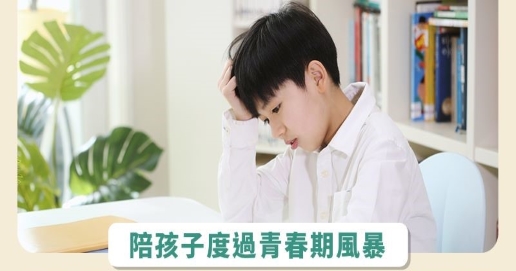The three years of middle school are widely regarded as the most challenging stage in a child’s growth, influenced by the dual pressures of academic performance and adolescence. Lolo, a seasoned teacher from a prestigious public middle school in northern Taiwan, shares her observations and advice to help parents better support their children through this turbulent period.
The "Storm Phase" of Middle School
According to Lolo’s analysis, middle school students face increased academic demands after transitioning from elementary school, as well as the complexity of interpersonal relationships. Eighth grade, often referred to as the "storm phase," is particularly challenging due to heightened academic pressure and social turbulence. While seventh graders typically remain in an observational period, eighth grade brings a significant rise in academic difficulty, especially in subjects like physics and chemistry. Additionally, this is often the time when students experience their first romantic interests, with couples forming within the classroom environment. As children enter adolescence, they may become rebellious and difficult to communicate with, leading to increased parent-child conflicts. Parents need to adjust their interaction methods to cope with anxiety and stress. (Image / Provided by Heho)
As children enter adolescence, they may become rebellious and difficult to communicate with, leading to increased parent-child conflicts. Parents need to adjust their interaction methods to cope with anxiety and stress. (Image / Provided by Heho)
Parents Need to "Level Up" Their Approach
In response to these changes, parents must also "upgrade" their strategies to address rebellion and communication challenges. Lolo advises parents to position themselves as "consultants," providing support and guidance while leaving final decisions to their children. This approach fosters independence in children while avoiding over-involvement.
Enhancing Parent-Child Communication
Lolo highlights the importance of shifting focus away from solely academics and grades. Parents should pay more attention to their child’s emotional state and engage in daily conversations to understand their interests. This can make communication less about responsibilities and pressure, ultimately reducing a child’s tendency to be unresponsive.
Helping Children Make Educational Choices
Middle school marks a critical turning point as students face their first major life decision regarding educational paths. Parents should assist children in exploring their interests without making decisions on their behalf. Lolo emphasizes that interests are not synonymous with hobbies or talents; parents should observe where their children’s passions lie and provide a broad range of options and possibilities. This guidance will help children discover a path that suits them in the future. Education choices should be based on the child’s interests, with parents playing a key role in accompanying and guiding them to explore future directions. (Image / Provided by Heho)
Education choices should be based on the child’s interests, with parents playing a key role in accompanying and guiding them to explore future directions. (Image / Provided by Heho)
Source: Future Family







